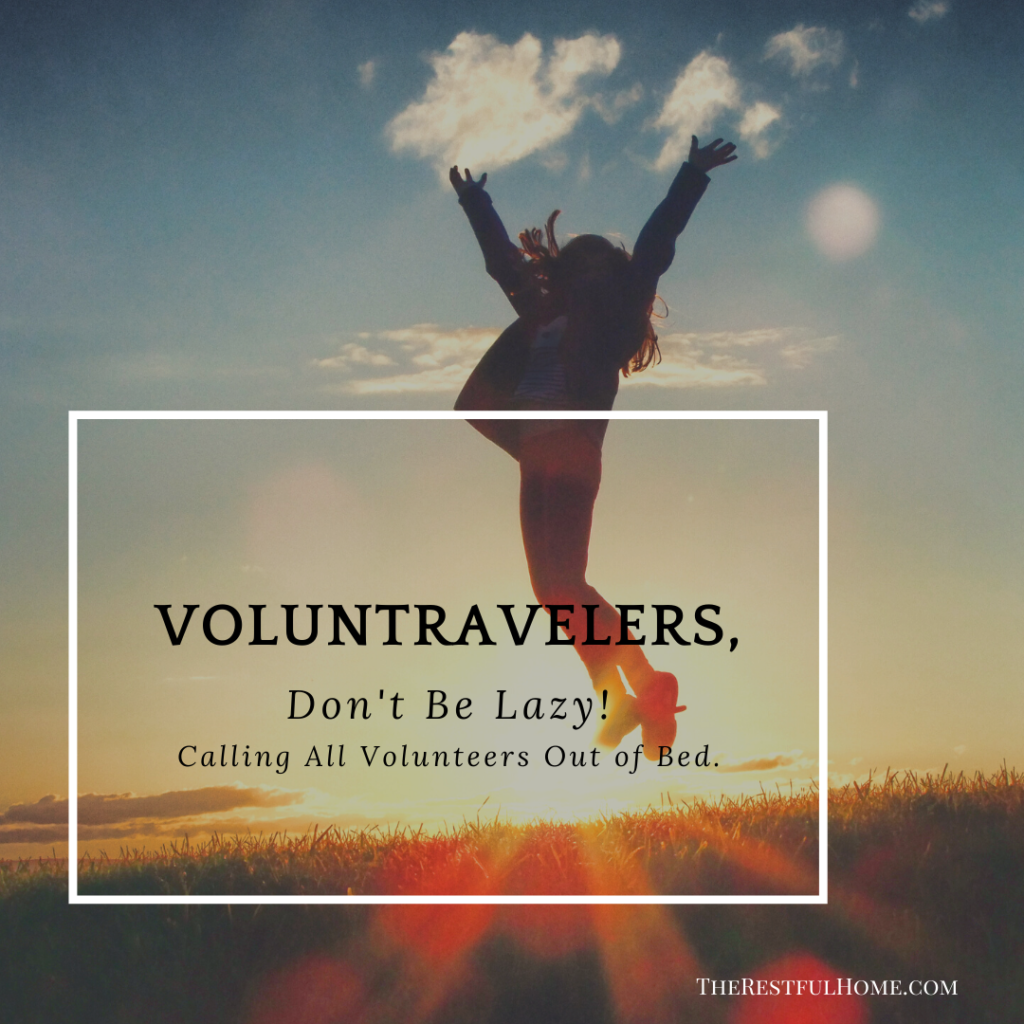
I had never heard of a voluntraveler before I inadvertently became one. But now I understand why some places that used to welcome volunteers with open arms and free room and board now charge a monthly fee to prospective volunteers. That monthly fee independent volunteers are facing in many countries usually springs from a simple fact: some volunteers are lazy. Yes, many volunteers want to change the world and are beginning by helping for free in some of the poorest countries. Others, though, are just trying to get free bunks and breakfasts while satisfying the travel itch.
If you simply want to travel, do that. Save up your money and enjoy yourself on safari in Kenya or whitewater rafting in Thailand. But if your goal is to help others while experiencing a new culture, follow some of these tips:
-
Find out what is expected of you, preferably before you even arrive.
Clarify those expectations at the site. You may find that the situation has slightly changed or that you are a “floater.” This change in plans doesn’t mean that your charity/ecotourism site doesn’t need you to do anything.
-
Go beyond expectations.
Work hard. Get up when everyone else is getting up in the morning. Don’t leave the field or the kitchen or the classroom early. You aren’t just there for yourself; you probably chose this site to volunteer at because you believed in its cause. Also, how you behave determines how welcoming your hosts will be toward future volunteers.
-
Ask questions.
Find out how well your chosen charity is (or isn’t) integrating with the culture and actually addressing problems or needs in its community. Especially if you plan to stay there and work for more than a week, you can be a part of improving how effective the work is.
-
Be creative.
Sometimes, when people have been working toward a goal for a long time, they run out of fresh ideas. They may not always be open to your new ideas on the first week you’re there, but they will probably appreciate the thought you’re putting into how they can be more effective, efficient, or culturally sensitive.
-
Be ready to learn.
An excellent reason for voluntraveling is to learn something new, to widen your horizons. I met far too many volunteers and other travelers who spent from six months to a year traveling through South and Central America without learning more than a few rudimentary phrases in Spanish and without ever understanding much of the cultures of the countries they visited. Seize the opportunity to learn from your hosts about what they’re doing to help the region in which they live, to learn at least some of the language of your temporary home and family, to help make the food being prepared in the dark kitchen with its smoky, open stove and dirt floor.
Work Hard and Enjoy Yourself!
I don’t pretend that in my two years of volunteering I was a perfect volunteer. However, I can say that I learned a lot, that my hosts didn’t want me to leave as early as I needed to leave, and that I made a small difference in the lives of others. I met many wonderful volunteers who were much more intrepid travelers, better listeners, and more enthusiastic helpers than I, and they inspired me. Those we call the poor inspired me with their generosity. I have few regrets and many experiences for which I am very grateful.
So I encourage you: make the world a better place while you go explore it. Roll out of bed when you’re tired and don’t feel like cleaning or cooking. Listen more than you speak. Smile when you pick up that load of firewood. See more than beautiful scenery—see the beautiful people you came here to get to know and serve. If you are a Christian, serve as if you’re serving Christ Himself.
“Whatever you do, work at it with all your heart, as working for the Lord, not for human masters…” Col. 3:23, NIV
If you do those things, you’ll have something better than great photographs of palm trees. True, you may still collect some amazing photos, but you’ll treasure the relationships you built and the knowledge you gained far more. And you will leave the door wide open for the next volunteer.
